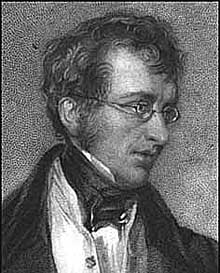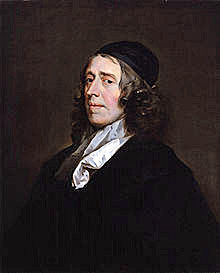
The Christian Monthly Repository asserted in 1827, “Throughout England a great part of the more active members of society, who have the most intercourse with the people have the most influence over them, are Protestant Dissenters. These are manufacturers, merchants and substantial tradesman, or persons who are in the enjoyment of a competency realised by trade, commerce and manufacturers, gentlemen of the professions of law and physic, and agriculturalists, of that class particularly who live upon their own freehold. The virtues of temperance, frugality, prudence and integrity promoted by religious Nonconformity...assist the temporal prosperity of these descriptions of persons, as they tend also to lift others to the same rank in society” (Requote by Richard W. Davis, The Politics of the Confessional State, 1760–1832, Parliamentary History 9.1 (1990): 38–49, doi:10.1111/j.1750-0206.1990.tb00552.x, quote p.41).

Pre-1800 nonconformists were more mobile than their peers because 1) they participated in a religious community with a large geographical footprint, 2) sometimes connected with other nonconformists in business, and 3) occasionally reached out to distant towns to find like-minded spouses for their children. In general, nonconformists were more well-to-do than their Anglican neighbors. In 1850, the local historian Thomas Lewis Wilson observed: “Our eastern counties became distinguished from all others by its great number of freeholders and smaller number of slaves,” which, in summary, he considered a reflection of the religious and political temperament of Essex (Sketches of Upminster, page 21). Knowing the trade networks and social circles of nonconformists can leverage your research.
Sir Thomas Fowell Buxton, 1st Baronet Buxton of Belfield and Runton (1786-1845) was a member of parliment, and also an abolitionist and brewer. He became a partner of the brewery of Truman, Hanbury, and Buxton in 1811. He was born in Castle Hedingham. His mother was a Quaker and he married Hannah Gurney, whose extended family was Quaker. His Gurney relatives supported his efforts in parliment, including prison reform and reducing the use of capital punishment. Although not as famous of Wilberforce, Sir Buxton was one of England's most courageous abolitionists (portrait sourced from http://www.brycchancarey.com /abolition/ buxton.htm, Public Domain, commons. wikimedia.org/w/index.php?curid=4214813).

Essex has a rich religious history of Anglicans, Puritans, Catholics and Protestants who advocated for justice and the cause of liberty. St Cedd establish a Christian community in Bradwell-juxta-Mare soon after arriving in England in 653. St Edmund is buried in Greensted (1013). Thomas Hooker (1586-1647) of Little Baddow is recognized as one of the intellectual fathers of American democracy due to his influence on the Pilgrims and Founding Fathers. John Eliot (1604-1690) is known as the Apostle of the Indians; he also lived in Little Baddow for a time. In 1646, John Owen was appointed the vicar of Peter ad Vincula, which is in Coggeshall. He is still remembered as a great theologian, the chaplain to Oliver Cromwell, and the Chancellor of Oxford University (Potrait sourced from http://www.brycchancarey.com/abolition/buxton.htm, Public Domain, https://commons.wikimedia.org /w/index.php? curid=4214813). Pilgrim Fathers and many who sailed on the Mayflower came from Essex. In fact, Christopher Jones, the captain of the Mayflower, hails for Harwich. George Washington's grandfather was a preacher whose pulpit was in Maldon. Members of the Spurgeon family were seminal Baptists, who had pulpits in Keveldon, Stambourne, Tollesbury and Colchester.
We do not know what you know. Please share with us your knowledge, and help us correct any error you find in our research.